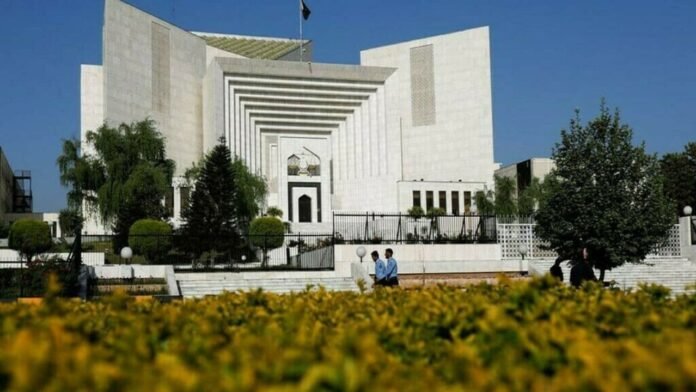The Supreme Court recently withdrew a case concerning the constitution of election tribunals in Pakistan. Drawing public attention due to its potential impact on the country’s electoral process. The court circulated a notice informing all parties involved about its decision to remove the case from the court files. Which had been scheduled for review by a larger bench?
Why the Case Was Delisted
The main reason for delisting it was because one of its members, Justice Jamal Khan Mandokhail. Who was part of a five-judge larger bench meant to hear it, could not attend proceedings. Other members included Amin-ud-Din, Qazi Faez Isa (CJP), Naeem Akhtar Afghan, and Aqeel Abbasi. Owing to this absence of Justice Mandokhail, the hearing of the matter had to be deferred. And adjourned till he would have been present for adjudication.
This is an indicator that it is very important for all cases especially those with national significance should be decided by a quorum. The approach ensures that there are complete judgments that embody collective sagacity thus maintaining judicial integrity.
Contextual Importance
This case is significant since it deals with election tribunals which are indispensable ingredients of Pakistan’s electoral framework. Electoral disputes based on crimes committed during polling or registration issues stemming from candidature eligibility or allegations of electoral fraud are settled in these courts. Effective composition and operation of these bodies are prerequisites for public confidence in electoral processes that guarantee free and fair elections.
By withdrawing this matter from its list, some crucial judgments affecting Pakistani forthcoming elections have been put off indefinitely. It is imperative for judiciary involvement in matters relating to voting. Since it provides a mechanism through which any disagreement can be resolved other than undermining democracy itself. Therefore political parties, candidates as well and voters themselves await eagerly directives arrived at after hearing this petition.
Possible Consequences
The postponement occasioned by the withdrawal of this suit puts into question the formation of election tribunals. All the same, it is expected that such a case will be revisited at a later date when all judges are present to handle it. In so doing, the court will have sufficient time to deal with all these matters and deliver an authoritative ruling.
On the other hand, there is no doubt that the delisting of this matter has since stimulated various discussions among jurists, and politicians. People about promptness in the decision-making process when it comes to issues connected with elections. The Supreme Court’s forthcoming verdict in this case is likely to have ramifications for many future elections in Pakistan. This means they should be guided by justice and equity while forming an election tribunal.
The Pakistani Supreme Court choice to strike off the case involving election tribunal formation shows how difficult and intricate resolving national issues can be. Though unfortunate, the adjournment exemplifies judiciary commitment toward thorough adjudication processes. Consequently, as rescheduling awaits them closer home, patriotic citizens know that a verdict from this bench could shape their country’s political destiny.


